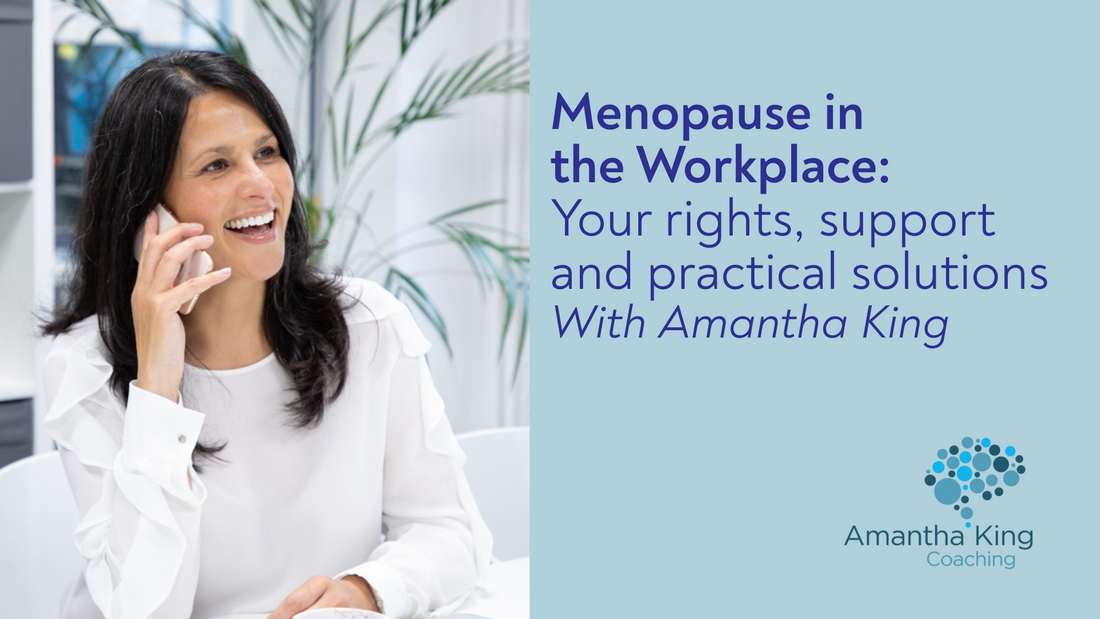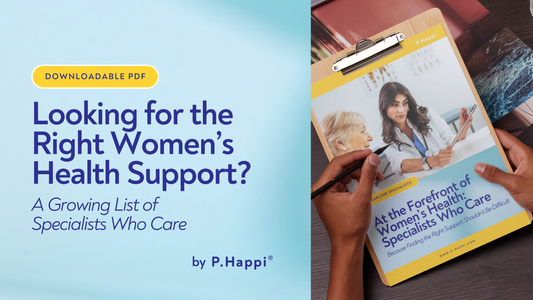
Menopause in the Workplace: Your rights, support and practical solutions
A Q&A with Expert Menopause Coach, Amantha King
About Amantha King
Amantha is an experienced leadership and confidence coach helping individuals, teams, and organisations thrive. Through her mPOWERu® program and Create: Develop: Build® framework, she blends behavioural change coaching with menopause-inclusive leadership to unlock potential, retain talent, and future-proof workplaces. Amantha empowers midlife women through 1:1 support while helping organisations build confidence-driven, menopause-inclusive workplaces.
Why Menopause in the Workplace Matters
For many women, menopause arrives during the peak of their careers. Symptoms such as fatigue, hot flushes, brain fog, and disrupted sleep can affect focus, productivity, and confidence. Yet too often, workplaces lack the understanding and support women need during this life stage.
The result? Talented women may reduce their hours, miss promotions, or leave the workforce altogether. That’s why awareness, open conversation, and practical policies are essential — for both employees and employers.
Your Rights at Work During Menopause in the UK
Under the Equality Act 2010 and the Health and Safety at Work Act 1974, menopause can be considered a protected characteristic if symptoms have a substantial impact on daily life. Employers have a legal duty to ensure working conditions do not worsen symptoms and to make reasonable adjustments where needed.
Disclaimer: The information in this article is for educational purposes only and is not intended as legal advice. For legal guidance on your individual situation, please consult an employment lawyer or HR specialist.
1. Menopause symptoms can be challenging at work. What are common challenges your clients have faced?
Let’s start with the truth: the most damaging symptom isn’t a hot flush—it’s self-doubt. I’ve coached senior leaders, creatives, medics, and educators who’ve all asked the same question: 'Where has my confidence gone?'
Brain fog, disrupted sleep, anxiety, and emotional turbulence are real and often invisible. Many women find themselves powering through in silence because they feal being seen as weak or difficult. And that silence? That’s where the damage happens.
It creates what I call the trust gap—the growing distance between what women need to stay well and what the workplace is willing or able to offer. We don’t fix it with awareness alone. We fix it with action.
2. How would you suggest women approach a conversation with their employer about menopause symptoms? Do you feel things have changed at work?
The first step is remembering this: you’re not asking for special treatment—you’re asking for conditions that allow you to thrive. Come into the conversation prepared. Know how your symptoms are affecting your performance, and what specific adjustments would help.
Are things improving? Yes—but unevenly. Some organisations are creating menopause policies, training managers, and embedding support into their wellbeing strategies. Others are still stuck in silence and stigma.
That’s why I focus on building what I call a menopause-empowered ecosystem™—not just a policy in a drawer, but a culture where women are heard, supported, and retained. When that ecosystem is in place, everyone wins.
3. From your experience, what workplace adjustments make the biggest difference for women going through menopause? How can these adjustments help both employers and employees?
The most effective changes are both practical and cultural.
On the practical side: flexible work options, access to cooler or warmer environments, options when it comes to uniform choices, time to attend medical appointments without penalty. On the cultural side: managers who are trained, teams that are empathetic, and leaders who model vulnerability and show compassion.
The result? Lower absenteeism. Better retention. Women staying in roles they’re exceptional at—rather than stepping away because they’re overwhelmed and unsupported.
This isn’t a “nice-to-have.” It’s a business-critical issue. And it’s a leadership one too.
4. Can an employer refuse menopause-related accommodations, and what should women do if that happens?
They can try—but the legal and ethical risks are growing. While menopause itself isn’t a protected characteristic under the Equality Act 2010, if an employee or worker is put at a disadvantage and treated less favourably because of their menopause symptoms, this could amount to discrimination if it is related to a protected characteristic, such as Age, Disability, Gender reassignment, or Sex.
If you’re refused support, document everything. Speak to HR. Engage your union. And if needed, seek legal advice. But above all—don’t internalise it. The issue isn’t your hormones—it’s a workplace that hasn’t caught up yet.
5. What’s one piece of advice you give every woman navigating menopause during work?
You’re not invisible, you’re essential.
I know how easy it is to shrink, to retreat, to feel like you’ve somehow lost your edge. But menopause isn’t the end of your power, it’s the recalibration of it.
This is the moment to get intentional. Understand what’s changing, own your needs, and realign with your purpose. That’s what my mPOWERu® program is all about—helping women reconnect with their values and rise, not just survive.
6. Finally, what are the ways women can work with you?
You can work with me in a number of ways—because support should meet you where you are.
For individuals, I offer 1:1 executive coaching, my signature mPOWERu™ programme, and retreat experiences focused on mind, body, and soul. These are available as half-day or full-day events, designed to help women reconnect with their values, strengths, and purpose—whether they’re navigating burnout, career transitions, or the shifting tides of midlife.
For organisations, I lead awareness webinars, take on guest speaker roles for leadership and employee events, and deliver end-to-end support using my Create:Develop:Build® framework. This framework goes beyond tick-box training—it’s a people-centric, data-driven approach that reduces absenteeism, increases retention, and builds genuine culture change around menopause inclusion.
You can connect with Amantha on: Linkedin
For resources & podcast episodes (Menopause Conversations) : visit YouTube
For upcoming events visit: www.amanthakingcoaching.com
Instagram: @mymenocoach | @amanthakingcoaching
However you choose to connect, just know this: this isn’t about going back to who you were—it’s about stepping into who you’re becoming. And that future? It’s powerful.





